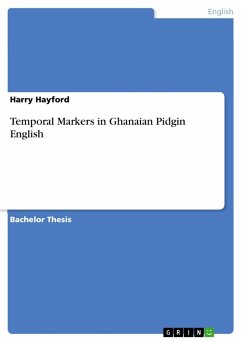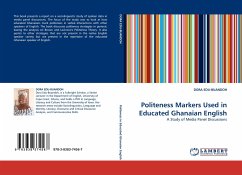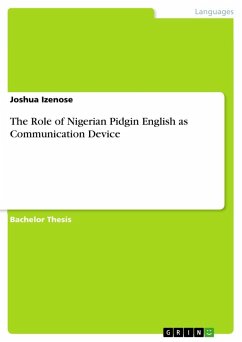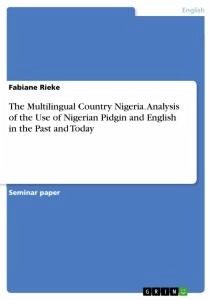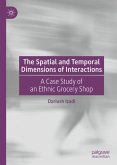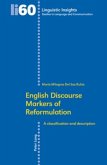Bachelor Thesis from the year 2021 in the subject English Language and Literature Studies - Linguistics, grade: B, University of Cape Coast, language: English, abstract: This study looks at how tense and aspect is realized in Ghanaian Pidgin English and compares it to Standard English. This research examines temporal markers in Ghanaian Pidgin English as well. The theoretical framework that serves as a bedrock for the analysis is the superstate and substrate theory. The methodology comprises recordings of conversation of students of the University of Cape Coast and excerpts from television programmes. The research found out that the bare form of the verb is used to realize pastime, present time and perfective meaning. While preverbal markers like "go" and "dey" are used to accompany the bare form of the verb to realize present time, future time and progressive meaning. The implication of these findings are that they contribute to studies in World English, studies in pidgins/creoles and studies in temporality across languages. The work shows that GPE has temporal markers that are crucial in organizing messages. The study is guided by the following questions: 1. What temporal markers exist in Ghanaian Pidgin English? 2. What temporal meanings do they realize? Firstly, the work deals with the background to the study, research questions, purpose and significance of the study and other relevant introductory issues. Afterwards, it will look at related literature, theoretical framework and other important issues. It will introduce the methodology for the study. Lastly, the research data will be analysed and assessed.

